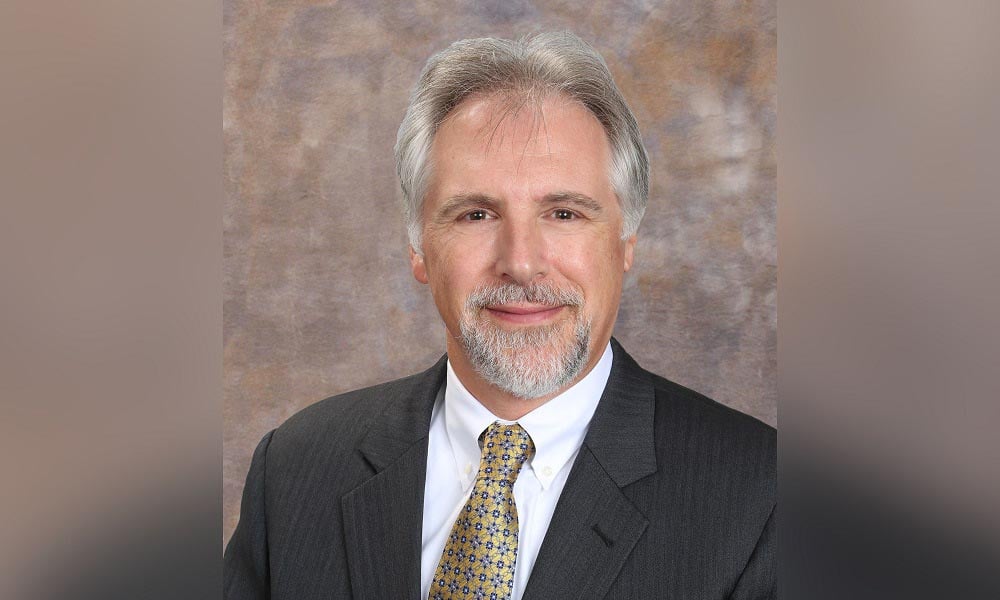ASSP's newest public director shares his passion for safety and recalls how a dramatic industrial accident almost left him blind

Ken Rueter, President and CEO – UCOR, is the American Society of Safety Professionals’ (ASSP) newest board member. On July 1, Rueter will join ASSP’s leadership to serve a three-year term on the board as the Society’s public director.
Rueter brings decades of experience to the role, as well as a highly personal commitment to workplace health and safety.
A forming moment
When he was 19 years old, Rueter – then working as an instrument and control technician – got into a dramatic industrial accident. Rueter got injured by an overhead line of caustic material – it ruptured over his head, pouring down on him.
Though the company he worked for had several opportunities in the way of safety that could be improved upon, he says that they followed the basics and had a safety shower that he was able to use to help mitigate the incident – and that made the difference.
Rueter was transported to hospital – his eyes were severely damaged.
“The specialist told me that had it not been for that safety shower, I would not have been able to see for the rest of my life.”
Rueter – who fully recovered – says that was a forming moment that has continued to guide him through a career that has spanned almost 40 years.
“It had a profound effect on me,” says Rueter. “I’ve got a lot of personal passion for safety – a lot of it is grounded in my experiences in the field, performing the trades.”
During his stay in the hospital, Rueter’s emergency contact was his mother. When she came to visit him, the doctor told her that it would take a few weeks to find out whether he would ever see again.
“I’ll never forget the gasp my mother made on hearing that, and as time progressed I thought that if I’m responsible for the wellbeing of others in a high hazard work environment, I am going to do whatever is in my power to make sure that their partner or family member never has to hear that sound.”
Health and safety as a prerequisite
Rueter started out in the trades when he was 17 as a general laborer and worked in a craft capacity for a number of years before deciding to pursue a degree in chemical engineering. He then got the opportunity to work across America at all the Department of Energy (DoE) major cleanup sites.
“Over all those years I've got to experience, see and stay very close to the physical work execution. And what really drew me in to the occupational safety and health aspects of things […] was our fundamental duty responsibilities to the entire workforce, to make sure that they go home the same way they came to work every day, says Rueter.
My background has taken me from my tools in my hand to the responsibility for the wellbeing of thousands of people. For me, there’s always been a direct connection to occupational health and safety, and the concept that safety is a prerequisite to every single thing we do.”
New perspectives
The occupational health and safety sector is rapidly evolving due to the pandemic. It has been a sobering time for businesses and organizations across the U.S. to pause and reflect about their safety culture
“I think it drove a strong perspective towards better understanding infectious disease management within the workplace. I won’t go as far as saying that I believe industry had been complacent, but it required a relook,” says Rueter.
And despite a tough situation, there have been some silver linings.
“I think we’re in a better place now as a result of that experience with the pandemic – I think there’s better controls and better understanding. Most importantly, there is better situational awareness, not just in the OHS profession but also within the general workforce.”
The federal government’s recent OSHA updates (the emergency temporary standard [ETS] for the healthcare sector) have also impacted UCOR as it runs a comprehensive occupational medical clinic.
Despite some debate around the standard, notably with regards to mandating the vaccine or not, Rueter says: “We're moving in a very in a good direction, regarding having a tool set that mitigates infectious disease hazards.”
Now more than ever, strong leadership in safety is essential.
As a board member, Rueter is most looking forward to being able to provide an industry perspective to the ASSP and act as a conduit to improve the connectivity and flow between the organization and businesses.
“[I want to] bring some business acumen perspective to the Society so that it’s better positioned for the future.”





